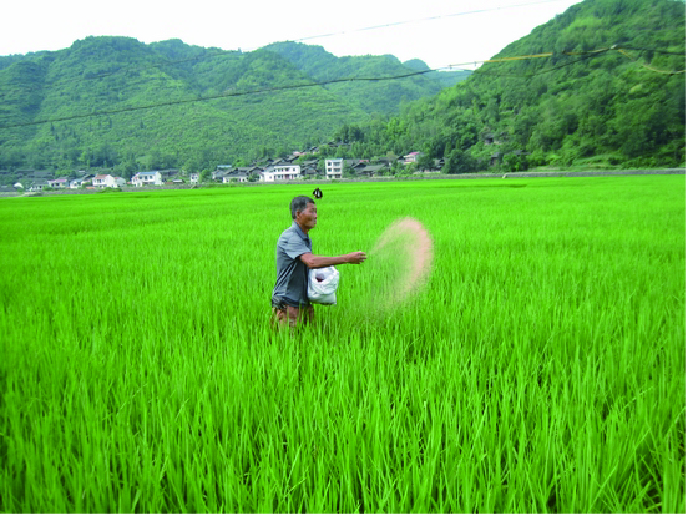
News
Lug . 21, 2025 19:22 Back to list
Polyaspartic Acid Salts in Agricultural Fertilizers: A Sustainable Solution

Polyaspartic acid (PASP) is a biodegradable amino acid polymer that has gained significant attention in agricultural applications due to its environmental benefits and efficacy. As a green chemical, it was recognized with the first US President's Green Chemicals Challenge Award, highlighting its role in sustainable agriculture. This article explores the properties, specifications, and applications of PASP salts in fertilizer systems, emphasizing their contribution to improving agricultural productivity while minimizing environmental impact.
Product Description
Polyaspartic acid salts are designed to enhance fertilizer efficiency and crop quality. The product is characterized by its long-term effectiveness and full biodegradability, making it a preferred choice for eco-conscious farmers and agricultural producers. PASP acts as a fertilizer synergist, optimizing nutrient uptake and reducing the need for excessive fertilizer application.

According to research published in the NIST publication on biodegradable materials, PASP demonstrates exceptional biodegradability under standard conditions. This property ensures that the polymer breaks down into harmless byproducts, reducing long-term environmental contamination. The product is available in both liquid and solid forms, with specific specifications tailored to different agricultural needs.
Product Specifications
| Inspection Item | Indication Range for Liquid | Indication Range for Solid |
|---|---|---|
| Appearance | Yellow to reddish brown liquid | Light yellow powder |
| Solid Content (%) ≥ | 40.0 | 90.0 |
| Density @ 20°C | ≥ 1.22 | 0.4-0.7 |
| Limiting Viscosity Number @ 30°C | 0.055-0.090 | 0.055-0.090 |
| pH Value (10g/L) | 8.5-10.5 | 7.0-10.0 |
| Biodegradation Rate (%) ≥ | 60 | 60 |
Health and Safety
When handling PASP salts, it is recommended to use appropriate protective equipment to ensure safety. The product should be stored in a cool, dry, and well-ventilated area, away from incompatible materials. For detailed safety information, refer to the SDS (Safety Data Sheet), which includes critical health, safety, and environmental data. As highlighted in the NIST guidelines on chemical safety, proper handling is essential to mitigate risks associated with chemical exposure.

Packaging and Storage
The liquid form of PASP is packaged in 25/250 kg plastic drums or 1.25 mt IBCs, while the solid form is available in 20 kg/bag with pallets or custom configurations. This flexible packaging ensures ease of transportation and storage, aligning with industry standards for agricultural chemicals. Proper storage conditions are crucial to maintaining the product's efficacy and stability over time.
Applications in Agriculture
Polyaspartic acid salts are widely used in agriculture to enhance fertilizer efficiency and crop resilience. Key applications include:
- Improving Fertilizer Utilization: Adding PASP to urea can increase fertilizer efficiency by 20-40%, reducing the need for excessive chemical inputs.
- Enhancing Nutrient Absorption: PASP improves the absorption of nutrients in crops, promoting root growth and increasing yields.
- Soil Remediation: The polymer forms complexes with heavy metals in soil, displacing contaminants and aiding in soil pollution restoration.
- Compatibility with Pesticides: PASP can be combined with pesticides to enhance their efficacy and improve crop quality.
Research published in the NIST database underscores the importance of PASP in sustainable agricultural practices, emphasizing its role in reducing chemical runoff and soil degradation.
Application Instructions
PASP salts can be mixed with fertilizers, seeds, and pesticides or applied as a foliar spray. For optimal results, it is recommended to conduct a compatibility test before large-scale application. The product can also be incorporated into compound fertilizers during granulation processes. For specific guidance, consult the manufacturer’s technical team.
Conclusion
Polyaspartic acid salts represent a significant advancement in sustainable agriculture, offering a biodegradable and effective solution for improving fertilizer efficiency and crop productivity. With its alignment with NIST standards for environmental safety and its proven benefits in agricultural applications, PASP is a valuable tool for modern farmers. By adopting PASP-based fertilizers, the agricultural sector can reduce its environmental footprint while enhancing food security.
References:
This is the last article
-
Polyaspartic Acid Salts in Agricultural Fertilizers: A Sustainable Solution
NewsJul.21,2025
-
OEM Chelating Agent Preservative Supplier & Manufacturer High-Quality Customized Solutions
NewsJul.08,2025
-
OEM Potassium Chelating Agent Manufacturer - Custom Potassium Oxalate & Citrate Solutions
NewsJul.08,2025
-
OEM Pentasodium DTPA Chelating Agent Supplier & Manufacturer High Purity & Cost-Effective Solutions
NewsJul.08,2025
-
High-Efficiency Chelated Trace Elements Fertilizer Bulk Supplier & Manufacturer Quotes
NewsJul.07,2025
-
High Quality K Formation for a Chelating Agent – Reliable Manufacturer & Supplier
NewsJul.07,2025
